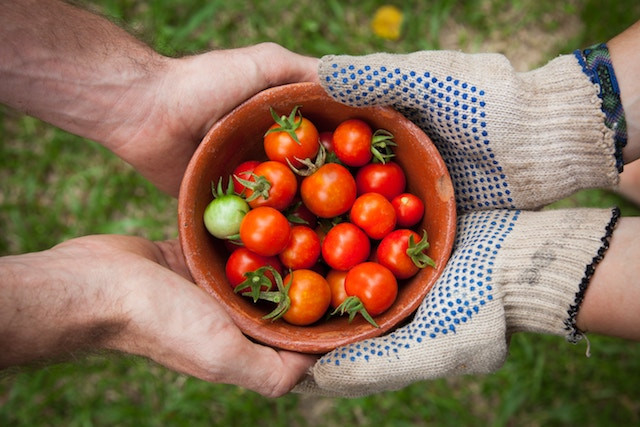Couple this with a likely change in access to EU workers once the UK leaves the EU and hundreds of farms that currently depend on migrant workers could find themselves in jeopardy. Some already are.
Now a long-awaited report published by the Migratory Advisory Committee (MAC) has recommended that a seasonal agricultural workers scheme could be the only possible sector-based work migration scheme permitted for low-skilled workers after Brexit. It said that the absence of such a scheme could lead to a “contraction and even closure” of many agricultural businesses in the short run, and to “modestly higher prices for consumers for certain horticultural products”.
The idea of a seasonal agricultural workers scheme is not new to the UK, a similar arrangement was set up in 1945. It gradually saw numbers of participants rise to a maximum of 21,250 annually before the scheme was scrapped in 2013 after the remaining participating countries, Romania and Bulgaria, joined the EU.
But the MAC report said there are both advantages and disadvantages to a post-Brexit seasonal agricultural workers scheme, and it recommended that farmers should be encouraged to pay a higher minimum wage “in return for the privileged access to labour”.
The government has said it will study the findings of the MAC report to set its post-Brexit immigration strategy, however plans to reintroduce a permanent scheme for seasonal farm workers are by no means definite just yet.
Pilot scheme too small
Following a prolonged enquiry by MPs on the Environment, Food and Rural Affairs Committee into agricultural labour constraints on British farms, a new pilot scheme was announced in early September stating that six-month visas are to be allocated to a total of 2,500 workers from outside of Europe.
Running between spring 2019 and December 2020, the scheme will unfortunately only deal with the tip of the iceberg. The Office for National Statistics reported in February that 99% of seasonal agricultural workers are from the EU.
Soft fruit production in the UK has grown by 130% over the last 20 years and the estimated number of seasonal workers required overall is likely to increase accordingly. About 75,000 non-UK horticultural workers were employed by horticulture farms alone in 2016, and at least 90% of British fruit, salad and vegetables is picked by workers from overseas.
The MAC report showed that after 2004, and the accession of eight new member states to the EU, the number of hectares of asparagus, cherries, raspberries and strawberries planted either stabilised or increased.
Hectares dedicated to growing certain fruit and vegetables either stabilised or increased after 2004. Source: Migration Advisory Committee, September 2018
With some farms already reporting staff shortages of 10-20%, the farming industry is calling for more to be done.
Migrant workers also currently fill many permanent, year-round positions in the pig, dairy, poultry and other farming sectors. These are positions separate to the seasonal labour with which migrant workers are so often associated. For those farms reliant on the availability of permanent migrant workers, the pilot scheme of 2,500 visas will be of little use. This is especially the case if migrant farm workers classed as skilled have not attained settlement in the UK before the end of any “implementation period” set out in the UK’s Withdrawal Agreement with the EU.
Studies also show that farms that are generally reliant on the domestic market for their labour requirements are reporting issues with staffing. Much more is required to prevent further labour issues arising both pre and post-Brexit.
Knock-on effects
If fewer EU workers are likely to be available, the 2,500 workers brought in by this new scheme will have little overall impact on the labour crisis currently hanging over the UK farming industry. Many farming businesses could suffer financial problems if larger numbers of visas aren’t made available during the two years the scheme is running. This could lead to further headlines about fruit “rotting in the fields”.
Pictured: Beets are harvested in a field near Swineshead, in Lincolnshire, in 2014. Photo credit: GRIMME Group via Flickr
Despite the increase of seasonal work made available on farms across the country, Britons are unlikely, at this point, to fill many of these positions. There’s a risk that British fruit growers will no longer be as competitive as overseas farms who still rely heavily on, and enjoy sufficient access to, seasonal labour. This could result in mass closure of certain types of farms on British soil, a greater reliance on international imports, and an increase in prices of produce in the supermarkets.
There is also the potential that some farms, to avoid closure, might be tempted to employ illegal migrant workers (which means fewer protections and rights for those workers), or to move their businesses abroad to countries where migrant workers might enjoy fewer rights and protections than those in the UK. Limiting the UK’s access to migrant workers only exports potential problems associated with migrant workers to other countries where they might be at greater risk.
Although technology is likely to assist with the labour crisis in food production in the future, such possibilities are of little use to those farmers who have already lost tons of fruit to waste and many hundreds of thousands of pounds in the process.


